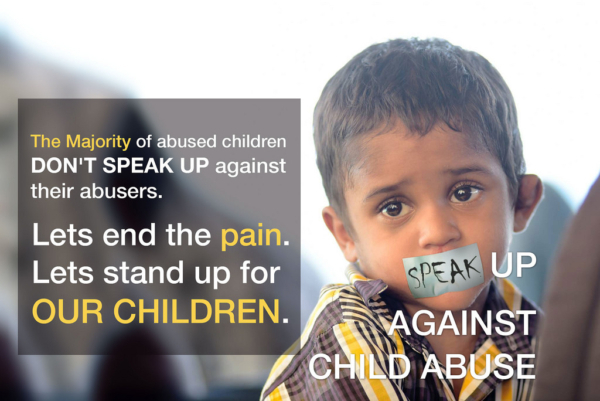

PSCP TRIFECTA
April 25

PLEASE NOTE: The PSCP Spring Trifecta is sold out. PSCP will offer a Trifecta in the Fall that information will be available in early August.
PSCP TRIFECTA
Earn credits for all 3 mandatory workshops, Child Abuse, Suicide, and Ethics
Friday, April 25, 2025
All Day Training
Location: Online Workshop
Updated Child Abuse and Trafficking Recognition and Reporting Training for Mandated Reporters in Pennsylvania: 2023-2025 Update
Presented By: Linda K. Knauss, Ph.D. ABPP
Registration: 7:45am Program: 8:15am to 11:15am
3 CE credits
Act 31 Credits
Act 48 Credits Available
Important note: Even if you have taken this course during your last licensing period, this course is updated, allows for new CE credits, and satisfies your new requirement with the state of Pennsylvania in this new licensing period.
In accordance with a Pennsylvania mandate for all health care professionals and funeral directors, PSCP: The Psychology Network presents this three hour workshop to discuss the obligation of mandated reporters and moral obligation of permissive reporters to report reasonable suspicions of child abuse and child labor and
sexual trafficking.
Objectives:
1. Identify the various categories of child abuse.
2. Recognize common indicators of child abuse/when there may be reasonable cause to suspect a child is a victim of child abuse.
3. Understand the mandatory reporting requirements for suspected child abuse.
 Linda K. Knauss, Ph.D., ABPP, is a professor at Widener University’s Institute for Graduate Clinical Psychology. She has served as the Chair of the Ethics Committees of the American Board of Professional of Professional Psychology, the American Psychological Association, the Pennsylvania Psychological Association and as Co-chair of the Philadelphia Society of Clinical Psychologists’ Ethics Committee. Dr. Knauss has authored several book chapters and journal articles on ethics and has taught ethics at many local universities as well as continuing education workshops on a variety of topics in ethics.
Linda K. Knauss, Ph.D., ABPP, is a professor at Widener University’s Institute for Graduate Clinical Psychology. She has served as the Chair of the Ethics Committees of the American Board of Professional of Professional Psychology, the American Psychological Association, the Pennsylvania Psychological Association and as Co-chair of the Philadelphia Society of Clinical Psychologists’ Ethics Committee. Dr. Knauss has authored several book chapters and journal articles on ethics and has taught ethics at many local universities as well as continuing education workshops on a variety of topics in ethics.
Dr. Knauss is the past-president of the Pennsylvania Psychological Association, the Pennsylvania Psychological Foundation, and the Philadelphia Society of Clinical Psychologists. She was also a member of the American Psychological Association’s Council of Representatives (2000-2006; 2013-2018 representing Pennsylvania). Dr. Knauss is the recipient of a 2015 APA Presidential Citation for her work in APA as well as the recipient of the 2002 Ethics Educators Award presented by the Pennsylvania Psychological Association’s Ethics Committee, and the recipient of the 2004 Pennsylvania Psychological Association Distinguished Service Award.
Dr. Knauss maintains a private practice where she sees children, adolescents, adults and families.

Presented By: Brett E. Schur, Ph.D.
Registration: 11:15am Program: 11:45am to 12:45pm
1 CE Credits
Act 48 Credits Available
Suicide is the 11th leading cause of death in the U.S. In a 2019 survey, 92% of Pennsylvania psychologists had a patient with suicidal ideation and 24% had a patient who attempted suicide while in treatment. The efficacy of a number of strategies for working with suicidal patients is well-documented in the clinical literature, yet many of these strategies are not commonly followed by clinicians.
Objectives:
1. Describe evidence supporting lethal means restriction in working with suicidal patients.
2. Describe a strategy for turning a suicidal crisis into a learning opportunity for the patient.
3. Describe one strategy for improving the efficacy of patient safety plans.
 Dr. Brett Schur works part-time on the Inpatient Psychiatry unit for the Corporal Michael J. Crescenz Veterans Administration Medical Center in Philadelphia. He also co-directs the Practicum Program, serves on the Intern Training Committee, and lectures on ethics for the Post-Doctoral Psychology Residents. He has been in solo private practice for over 30 years, working with adults of all ages, including patients with chronic medical illness, serious and persistent mental illness, anxiety, depression and trauma. He is Adjunct Instructor at the Philadelphia College of Osteopathic Medicine where he teaches Ethics in Psychology and History & Systems of Psychology. Dr. Schur has recently lectured on suicide prevention, ethics, placebos, and anger management.
Dr. Brett Schur works part-time on the Inpatient Psychiatry unit for the Corporal Michael J. Crescenz Veterans Administration Medical Center in Philadelphia. He also co-directs the Practicum Program, serves on the Intern Training Committee, and lectures on ethics for the Post-Doctoral Psychology Residents. He has been in solo private practice for over 30 years, working with adults of all ages, including patients with chronic medical illness, serious and persistent mental illness, anxiety, depression and trauma. He is Adjunct Instructor at the Philadelphia College of Osteopathic Medicine where he teaches Ethics in Psychology and History & Systems of Psychology. Dr. Schur has recently lectured on suicide prevention, ethics, placebos, and anger management.

Working with Difficult Clients Using a Positive Ethics Frame
Presented By: Jeanne M. Slattery, Ph.D.
Registration: 1pm Program: 1:30pm to 4:30pm
3 CE Credits
Act 48 Credits Available
This interactive webinar distinguishes between positive and remedial ethics frameworks, then invites participants to consider ethical dilemmas relating to work with a range of difficult clients (e.g., “resistant” clients, those holding challenging viewpoints, multiple relationships) as we pull together a decision-making framework for work with challenging people and dilemmas.
Objectives:
1. Differentiate between remedial ethics and positive ethics.
2. Identify factors that are used to make ethical decisions about working with difficult clients.
3. Apply a positive ethics frame to ethical dilemmas.
 Jeanne M. Slattery, Ph.D., is Professor of Psychology and Assistant Chair at Pennsylvania Western University and has authored or coauthored several books including Empathic counseling: Building skills to empower change; Trauma, meaning, and spirituality: Translating research into clinical practice; and Counseling diverse clients: Bringing context into therapy. She is currently serving as past-president of Pennsylvania Psychological Association, where she has led a series of conversations on ethical dilemmas that have become a regular column in Pennsylvania Psychologist. She is also serving as Secretary to APA’s Div. 31. She has a small private practice working with adults and with mood and anxiety disorders, especially subsequent to a history of trauma.
Jeanne M. Slattery, Ph.D., is Professor of Psychology and Assistant Chair at Pennsylvania Western University and has authored or coauthored several books including Empathic counseling: Building skills to empower change; Trauma, meaning, and spirituality: Translating research into clinical practice; and Counseling diverse clients: Bringing context into therapy. She is currently serving as past-president of Pennsylvania Psychological Association, where she has led a series of conversations on ethical dilemmas that have become a regular column in Pennsylvania Psychologist. She is also serving as Secretary to APA’s Div. 31. She has a small private practice working with adults and with mood and anxiety disorders, especially subsequent to a history of trauma.
PSCP: The Psychology Network is approved by the American Psychological Association to sponsor continuing education for psychologists. PSCP: The Psychology Network maintains responsibility for this program and its content.
